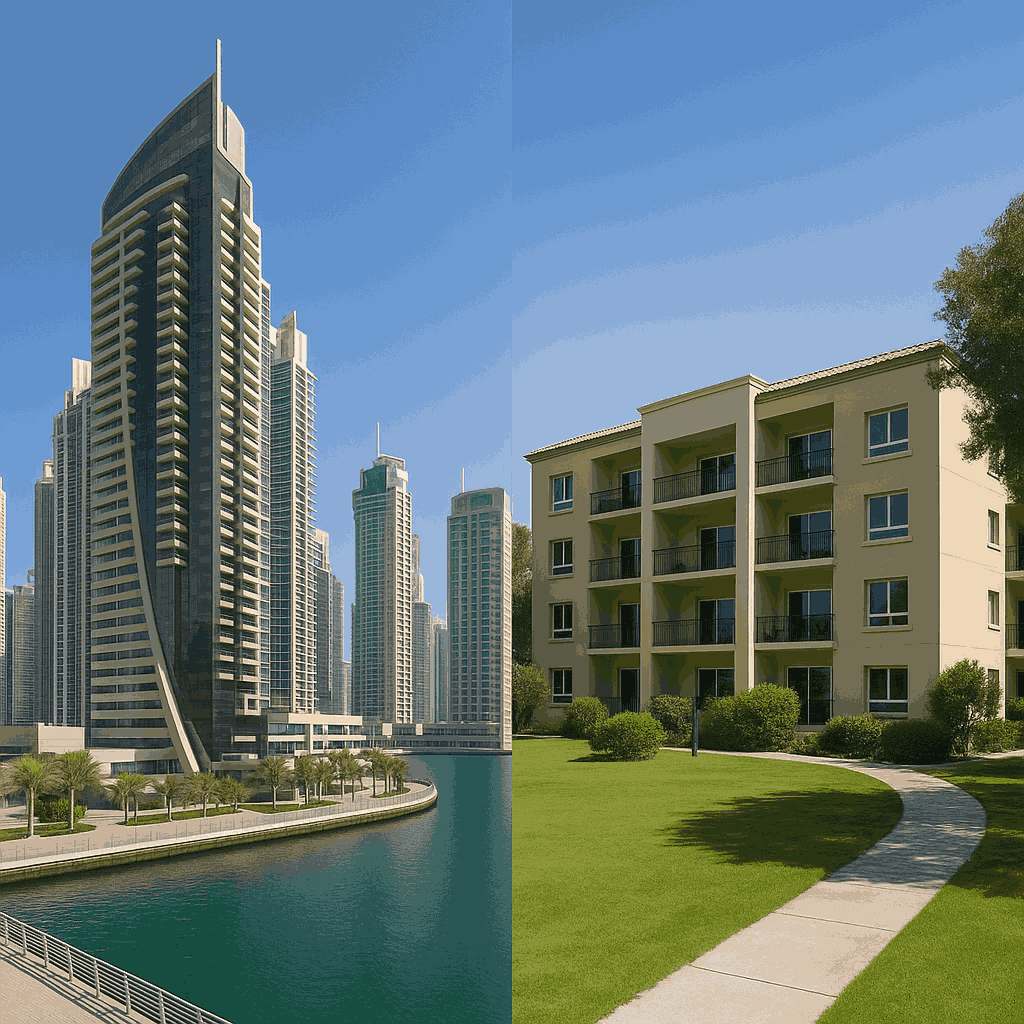The United Arab Emirates (UAE), particularly Dubai and Abu Dhabi, has become a hub for real estate investment, drawing interest from both local and international investors. One of the critical decisions for any buyer or investor is understanding the difference between freehold and leasehold properties. These two ownership models dictate not only how long you can hold the property but also your rights over the land and structure.
Knowing whether a property is freehold or leasehold is essential for making an informed real estate investment in the UAE. This article explains these two types in great detail, allowing buyers to confidently navigate the dynamic UAE property market.
What Is Freehold Property in the UAE?

Definition of Freehold
A freehold property refers to absolute ownership of both the unit and the land on which it stands. The owner has full legal rights and can sell, lease, or pass it on to heirs without needing approval from any governmental or private entity.
Freehold Zones in the UAE
Foreign nationals were previously restricted from owning property in the UAE. However, with the Freehold Law of 2002 in Dubai and similar legislation in other Emirates, specific designated freehold zones were created. These areas allow non-GCC nationals to fully own properties. Popular freehold zones include:
- Dubai Marina
- Downtown Dubai
- Palm Jumeirah
- Business Bay
- Jumeirah Lake Towers (JLT)
- Arabian Ranches
- Mohammed Bin Rashid City
Benefits of Freehold Ownership
- Permanent Ownership: The property is yours indefinitely.
- Right to Resell or Rent: Freehold owners can sell or lease the property at their discretion.
- Visa Eligibility: Investors may be eligible for a UAE residency visa.
- No Ground Rent: Unlike leasehold, no annual payments are needed for land use.
- Greater Property Value Appreciation: Long-term asset with stronger resale potential.
What Is Leasehold Property in the UAE?
Definition of Leasehold
A leasehold property grants the buyer the right to occupy and use a property for a fixed period, typically ranging between 30 to 99 years. However, the buyer does not own the land—ownership reverts to the freeholder after the lease expires unless it is renewed.
Popular Leasehold Areas in the UAE
Some areas in Dubai and Abu Dhabi are structured as leasehold zones. Common leasehold areas include:
- Green Community
- Dubai Silicon Oasis
- Jumeirah Village Circle (some parts)
- Dubai Festival City
- The Gardens
Features of Leasehold Properties
- Fixed Term Usage: Typically 30-99 years, renewable upon expiration.
- Ownership Limited to Structure: You own the unit, not the land.
- Land Rent Fees: Ground rent may apply annually.
- Requires Consent for Major Changes: Renovations need landlord approval.
- Lease Renewal Uncertainty: Post-lease decisions lie with the freeholder.
Key Differences Between Freehold and Leasehold in the UAE
| Feature | Freehold Property | Leasehold Property |
|---|---|---|
| Ownership | Permanent | Temporary (30-99 years) |
| Land Rights | Full ownership | No land ownership |
| Selling Rights | Full control | Restrictions may apply |
| Modification Rights | Full control | Requires approval |
| Visa Eligibility | Yes, if criteria met | Rarely applicable |
| Location | Designated freehold zones | Limited leasehold areas |
Legal Framework & Documentation
Freehold Ownership Documents
- Title Deed (Oqood/Title Certificate) from Dubai Land Department (DLD) or Abu Dhabi Municipality
- Full legal name registered as property owner
- No expiry date on ownership
Leasehold Ownership Documents
- Lease Agreement or Contract
- Ejari Registration (in Dubai)
- Legal rights clearly stated including lease term, conditions, and renewals
Investment Potential: Freehold vs. Leasehold
Freehold Investment Advantages
- Higher ROI: More desirable in the resale and rental market.
- Long-term Security: Attracts serious investors and families.
- Financing Options: Easier to get mortgage financing from UAE banks.
- Appreciation: Land and structure appreciate together over time.
Leasehold Investment Perspective
- Lower Entry Cost: Typically more affordable than freehold.
- Shorter Investment Horizon: Ideal for expats staying 5–10 years.
- Limited Resale Options: Lease tenure affects resale attractiveness.
Which Ownership Type is Best for You?
Choose Freehold If You:
- Plan to live in the UAE long-term
- Want to pass property to heirs
- Seek visa benefits
- Want full control over your asset
- Aim to maximize long-term investment returns
Choose Leasehold If You:
- Are an expat staying temporarily
- Prefer a lower upfront investment
- Want to avoid land maintenance responsibility
- Are okay with renewing lease terms
Future Trends in the UAE Property Market
Evolving Laws and Regulations
The UAE government continues to revise property ownership laws to make the market more accessible and investor-friendly. For instance, visa laws tied to property investment have been relaxed, making freehold investment even more attractive.
Sustainable Development
With a growing focus on smart cities and eco-friendly construction, areas such as Dubai South and Masdar City offer new freehold investment opportunities that align with global environmental standards.
Conclusion: Making the Right Decision
Understanding the differences between freehold and leasehold is crucial for making smart investment choices in the UAE real estate market. While freehold offers full ownership and long-term benefits, leasehold provides flexibility and affordability for shorter-term investors.
Whether you’re a first-time buyer, seasoned investor, or an expat seeking stability, your ownership choice should align with your goals, budget, and duration of stay in the UAE. Both options come with pros and cons—but with the right knowledge, you can ensure a secure and profitable property investment.
